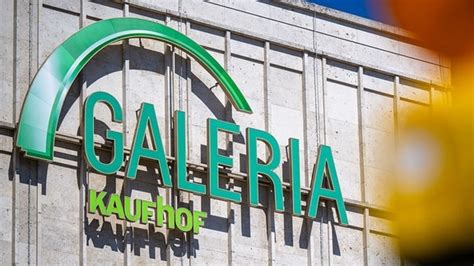In the collective bargaining negotiations with its employees, the Galeria Karstadt Kaufhof retail group has made a proposal to the workers employed by it to reach an agreement. As is so often the case,, this proposal was in no way in the interests of the employees and was consequently rejected by them. A pay dispute at Galeria is now on the horizon.
In the aforementioned proposal, the employees were offered a wage increase of 8 percent spread over eight years. In addition, the employees are to receive a tax-free inflation compensation bonus of 600 euros. As a means of motivating their workers more, there is also an unspecified bonus with which the employees are to participate in the success of their store
However, this proposal by Galeria is ultimately completely contrary to the interests of the employees, as the result of the corresponding wage increase is far below to the wage increase of the regional collective agreement that applies to other retail employees. For example, the wage that other workers in the retail sector receive under the regional collective agreement is 29 percent higher than that of Galeria employees. The important thing here is that the company refuses to accept the regional collective agreement for the retail sector and instead wants to negotiate its own collective agreement with the employees. This collective agreement, which applies exclusively to Galeria, is then supposed to be more lucrative for the company and worse for the workers, in line with the owners' wishes.
Galeria's outrageous proposal was rightly rejected by the union. The union representatives pointed out that the company's proposal was far below the collective agreement for the retail trade. What now awaits is a sharper wage dispute about pay. The Group's management has already made it clear that they have supposedly reached their "economic limits" with the offer they have made, thus showing that they are not willing to agree to a higher pay and definitely not to accept the regional collective agreement.
However, Galeria's acceptance of the retail sector collective agreement is exactly what the employees should be demanding. However, it is not particularly likely that this will be done by the union leadership. In the past, they have shown themselves to be extremely hesitant in the struggles to retain Galeria stores and have cheerfully agreed to closures and the dismissal of workers, as this is supposedly the least of all evils. In the current negotiations, too, the rhetoric of the Verdi negotiator in rejecting the offer made it clear that the demand to accept the sectoral collective agreement was not clearly formulated and that the possibility of a separate collective agreement below the sectoral collective agreement is definitely being taken into consideration.
The employees at Galeria have already suffered numerous attacks on their interests in the past. The reason for this was the company's repeated insolvency. In recent years, the company has been passed from owner to owner. The company has gone bankrupt three times in the last three years. As is so often the case, the workers had to pay for this by losing their jobs. Even those who were not thrown out have years of job insecurity behind them. Again and again, the respective owners have tried to play off the employees of the various locations affected by a possible closure against each other or to justify attacks on the interests of the workers by referring to the poor situation of the company. This time too, the new owners have begun to legitimize their miserable proposal with alleged economic limitations. It is important as workers not to go along this path and allow the capitalists to pull us behind their cart. The struggle we workers must wage is the common struggle for better working and living conditions for us and our colleagues, not for the economic interests of the company.











